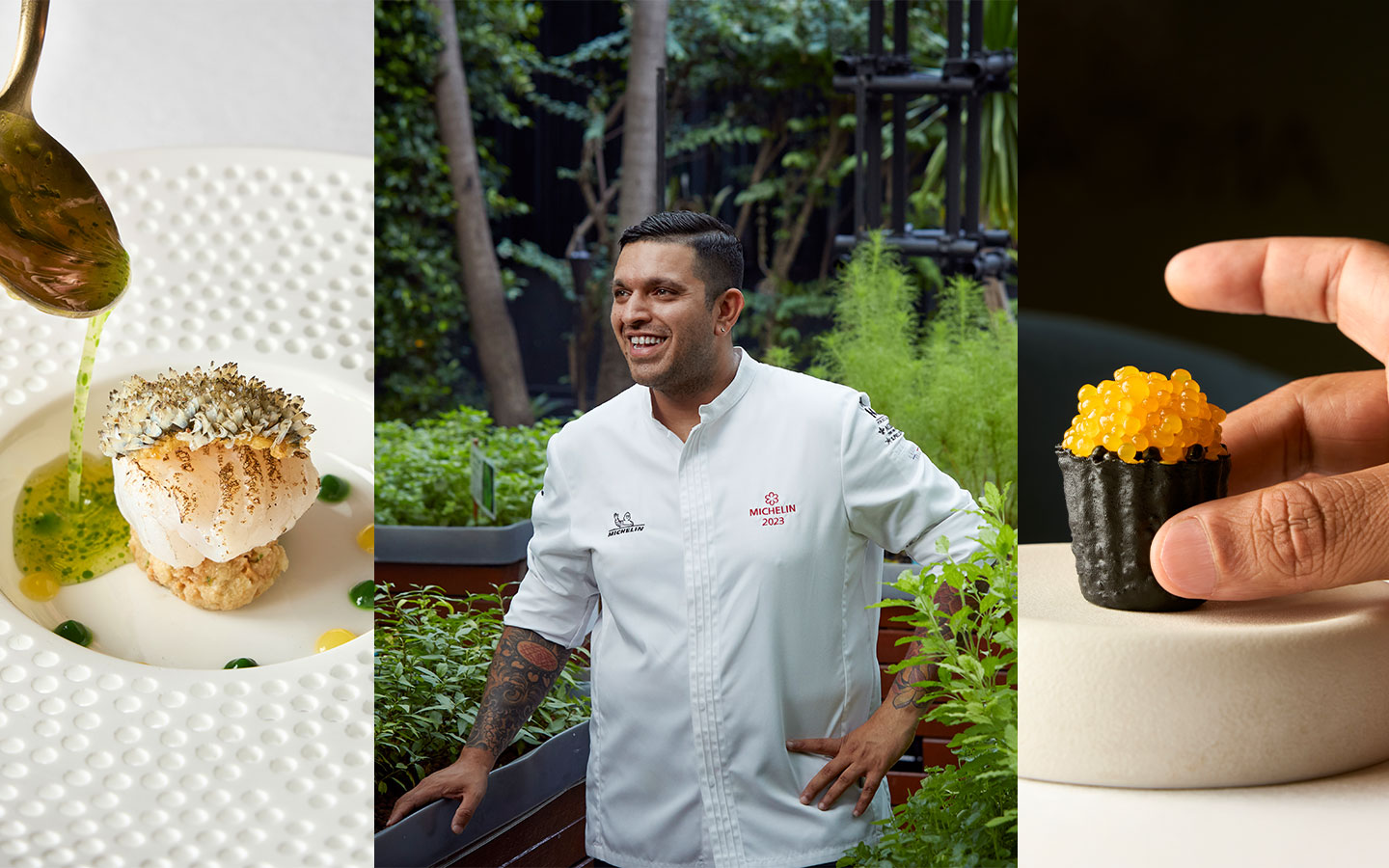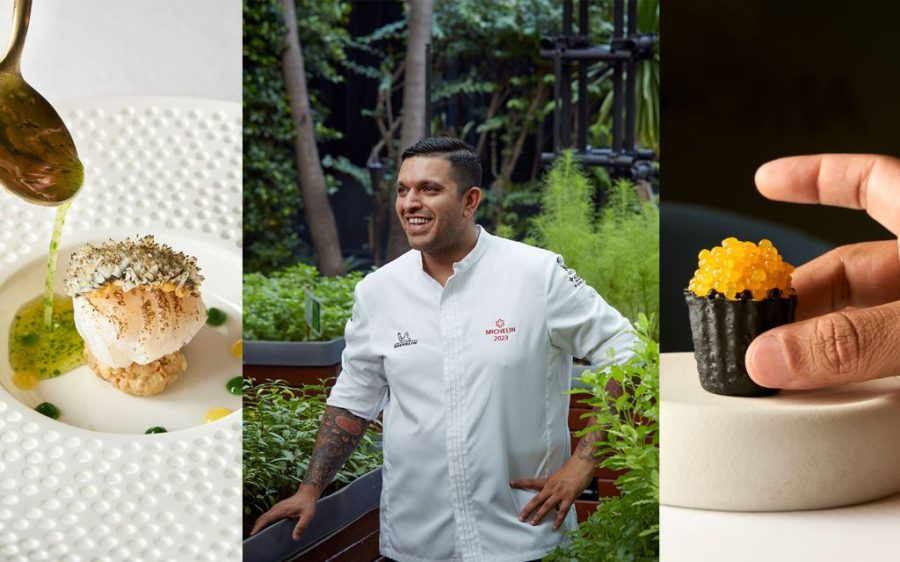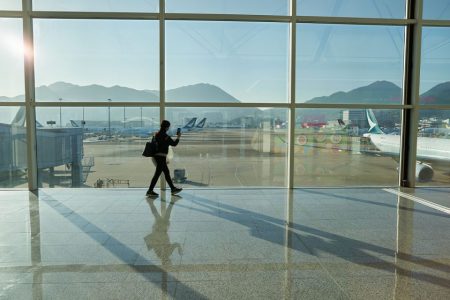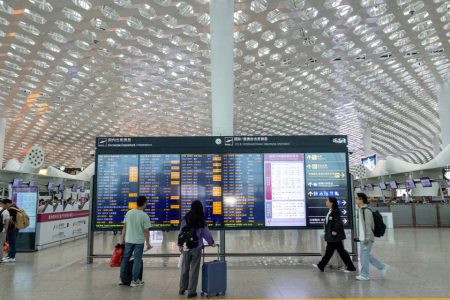Ethical dining doesn’t have to mean compromise. Just ask Bangkok’s Deepanker “DK” Khosla. The Indian-born chef is the force behind Haōma, Thailand’s first zero-waste restaurant. In an industry plagued with greenwashing, Haōma is showcasing a non-nonsense commitment to sustainable restaurant food.
The restaurant is part of a closed-loop that includes a regenerative farm, rainwater harvesting, and in-house composting. Khosla raises fish, chicken and sheep. He grows spices and vegetables. These products go into modern Indian tasting menus that are exciting, complex and refined.
[See more: On World Environment Day, here are five things you can do in Macao to help the Earth]
Sustainable dining isn’t always easy. “Doing this is a 10-hour-a-day exercise,” Khosla says. But it’s an approach that has made Haōma into Bangkok’s only restaurant with both a Michelin Star and a Michelin Green Star – and the only Indian restaurant in the world with the double distinction.
Haōma chef Deepanker Khosla’s journey to Bangkok
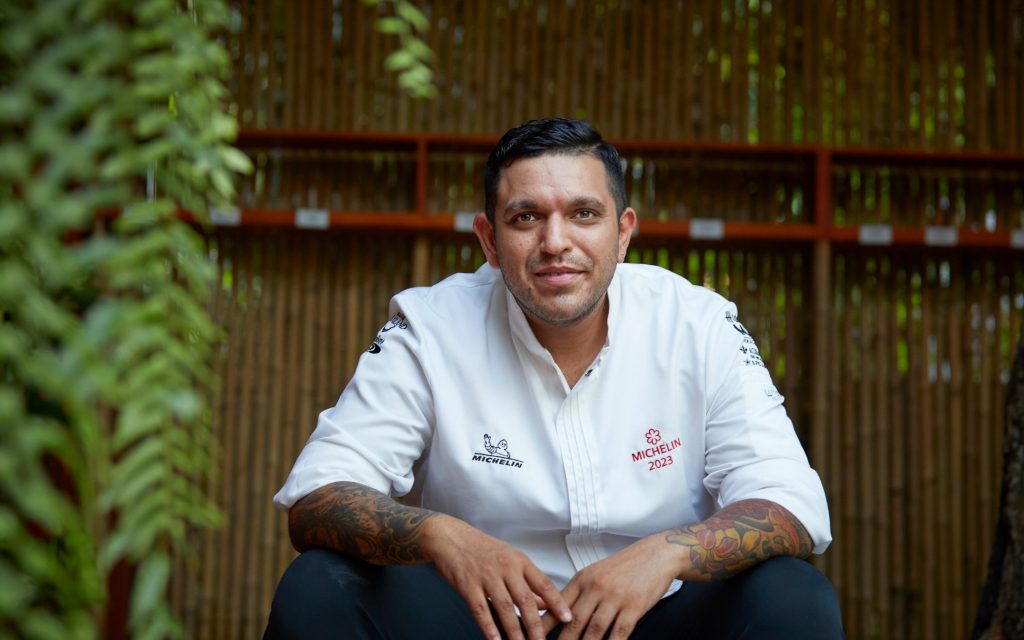
Khosla was born in the northeast Indian city of Prayagraj (formerly known as Allahabad) and had a carefree upbringing. He would play outside until sunset and come home with scraped knees to his mother’s cooking.
Every day, door-to-door vendors would push their carts of produce to each household, making farm-to-table food a daily fact of life. “Our moms would sift through the goods and cook with whatever was available. All seasonal, local ingredients,” Khosla recalls.
[See more: World Environment Day: Discussing the state of Macao’s environment with Joe Chan]
He studied cooking at the Welcomgroup Graduate School of Hospitality in southwestern India. Then he worked his way up through the kitchens at Luxury Collection hotels across the country, learning for a time under chef Shivneet Pohoja, then India’s coach for the Bocuse D’Or gastronomic competition.
Encouraged by his mother, he left India for Bangkok in 2014 to work with the same hotel chain as an executive chef. In 2017, he decided to set up his own venture and launched Haōma. Khosla wanted to honour his culinary roots while exploring the growing interest in sustainable dining. He says he knew he could make sustainable dining profitable, contrary to what many chefs believe.
[See more: From home kitchen to Michelin star: Justindia’s Justin Paul shares his culinary journey]
The simple, direct path food took from producer to plate in his childhood served as an inspiration. “When you talk about Indian cuisine and sustainability, it’s not so much about moving forward… we’re actually looking back at how we used to do things,” explains Khosla.
Regenerative farming in one of Southeast Asia’s busiest capitals
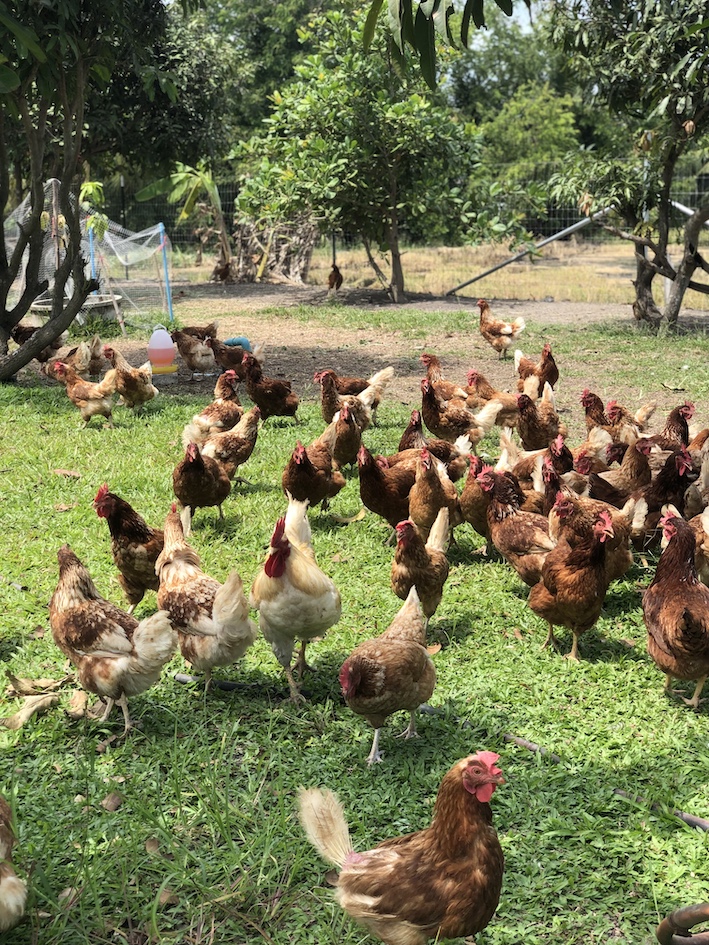
Fresh off an online course in regenerative farming from Harvard, Khosla leased a plot of land south of Bangkok in 2020 and set out to build a farm. Soon, herbs and fruit trees were thriving alongside free-range chickens and goats, and the ingredients began to make their way into Haōma’s kitchen.
The distance that ingredients are transported before they make it to the restaurant are noted on the menu. Whether it’s the mint in your cocktail or the sea urchin – harvested off the coast of Sattahip, on Thailand’s eastern seaboard and used with mango and green banana in Haōma’s delightful sea urchin curry – nothing comes from more than 790 kilometres away.
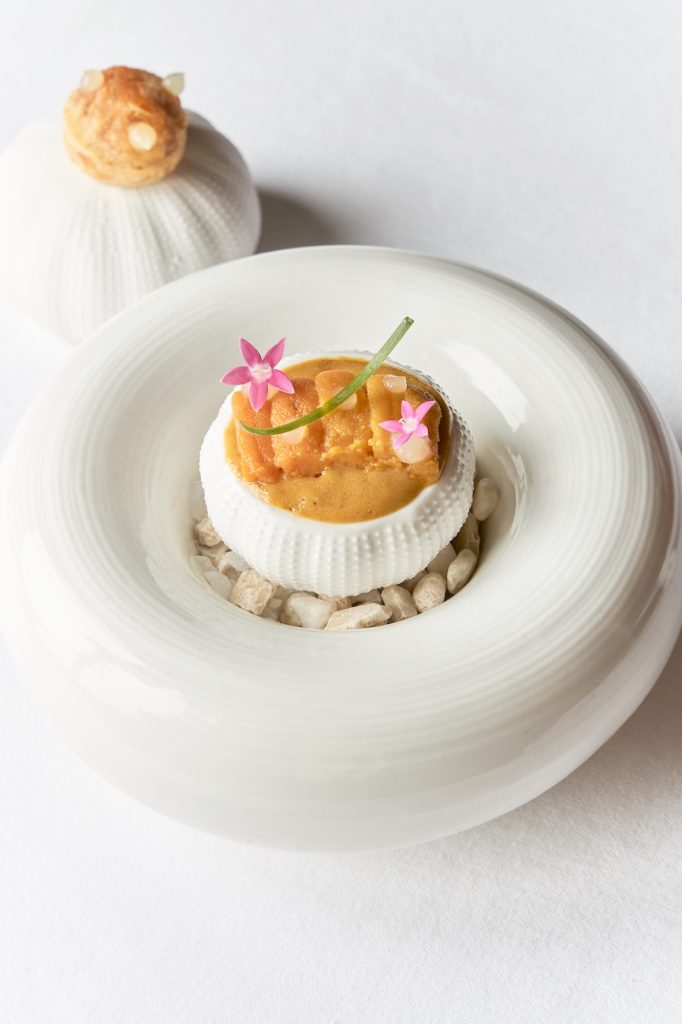
Farming is also carried out at the restaurant itself. Set in Khosla’s former home, Haōma boasts raised garden plots and fish ponds, where goby fish are raised, as well as other species. Thirty percent of the organic waste from the restaurant feeds the fish, while seventy percent is composted and used to nourish the soil.
[See more: From Munich to Macao: Chef Tohru Nakamura talks culinary connections]
The goby is part of Haōma’s effort to use species that rarely make it onto restaurant menus. It looks like “anything but something you’d want to eat,” Khosla quips, but at Haōma, it is skillfully transformed into a delightful dish, served with a peanut-based sauce that has a notable kick from Himalayan timur – a spice similar to Sichuan peppercorn.
Sustainability on the menu at Bangkok’s Haōma restaurant
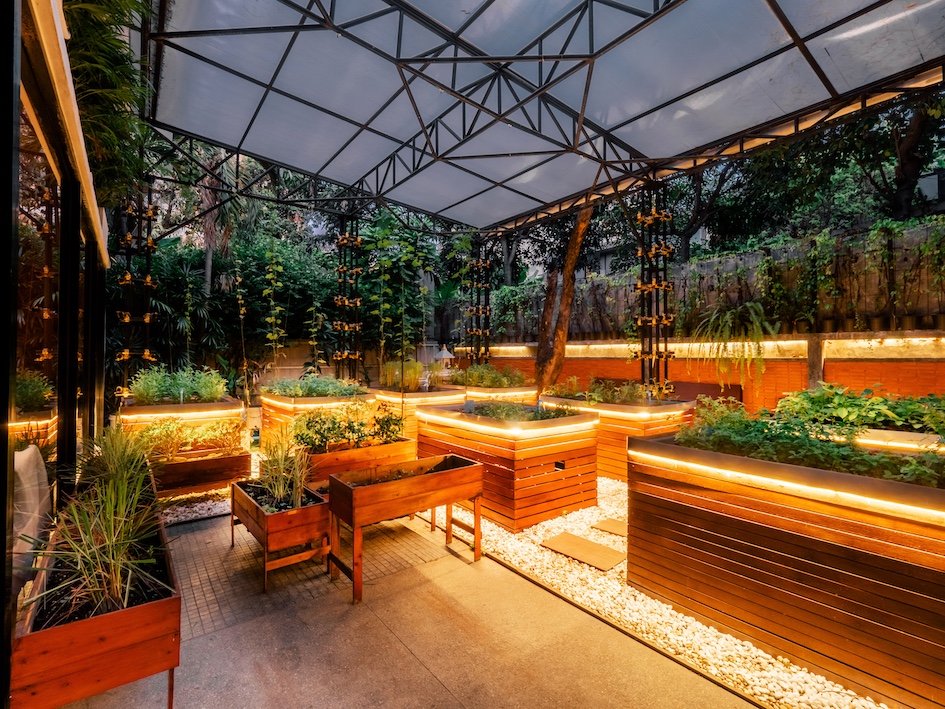
Khosla’s boldest statements are made through the food itself. Smart, honest neo-Indian dishes prove that fine dining can be both exquisite and ethical. Diners journey across India’s diverse regions – and its millennia-old culinary legacy – across ten courses, choosing between two tasting menus: meat and seafood or vegetarian. Serving set menus only allows the restaurant to better control the amount it prepares and stick to its zero-waste goals.
The drinks programme, curated by Haōma’s sommelier Vishvas Sidana, follows the same principles as the kitchen. Every wine- or spirit-maker Haōma works with has sustainability credentials of its own – many follow organic or biodynamic methods – and Sidana’s award-winning list blends new-wave, natural and classic wines, with some unexpected twists.
[See more: Where are the pet friendly eateries in Macao?]
The rose sake served with the tomato chaat, for example, is produced by Mukai Kuniko, a Kyoto brewery established in 1754. It produces around 200 bottles per year, and Haōma gets the entire yield. Even the tea and coffee are sourced from Thai boutique small farmers or plucked in the wild.
Nurturing lasting change
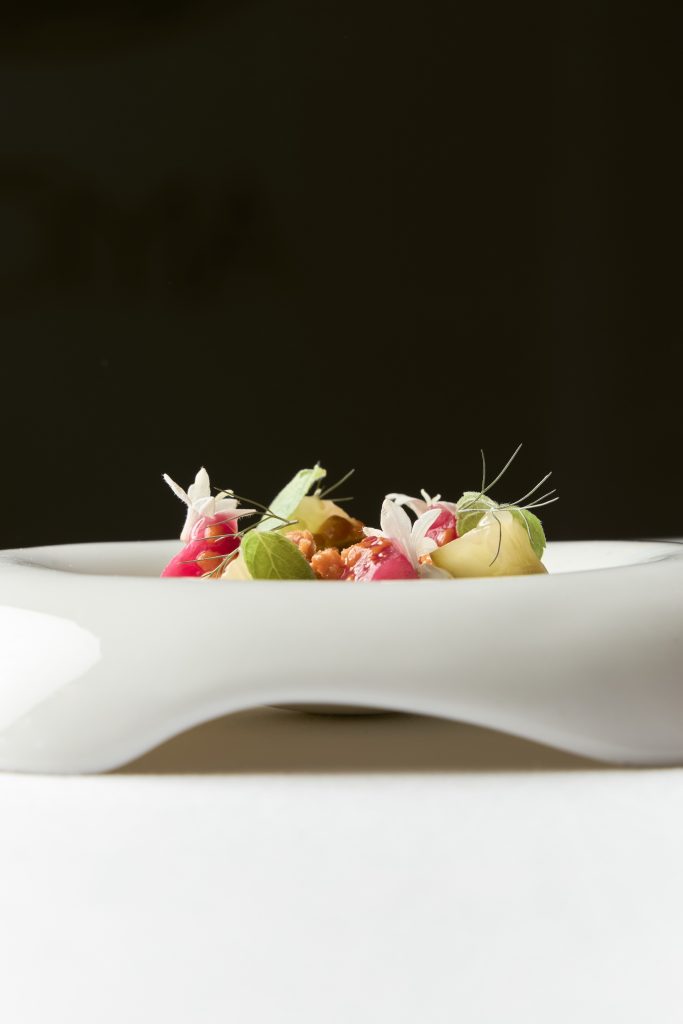
As a driving force for change in the industry, Khosla has won over both diners and critics alike. Haōma has attracted a global following of loyal guests and earned a growing list of accolades, including the Sustainable Restaurant Award from the World’s 50 Best in 2024.
In 2021, Khosla was one of the first three recipients of the organisation’s Champion of Change award, which honours individuals making meaningful contributions to a better food future.
[See more: New restaurants to visit in Macao this June]
And speaking of the future, Khosla recently bought a plot of land, which will become Haōma’s new, larger farm starting in October. This space will allow for the integration of modern farming technology and brings him closer to his vision of a true farm-to-table restaurant.
“I am not trying to save the planet,” Khosla says. “I am just trying to make a difference, and that’s something we all can do.”
Sara Santos Silva travelled to Bangkok as a guest of Haōma.
